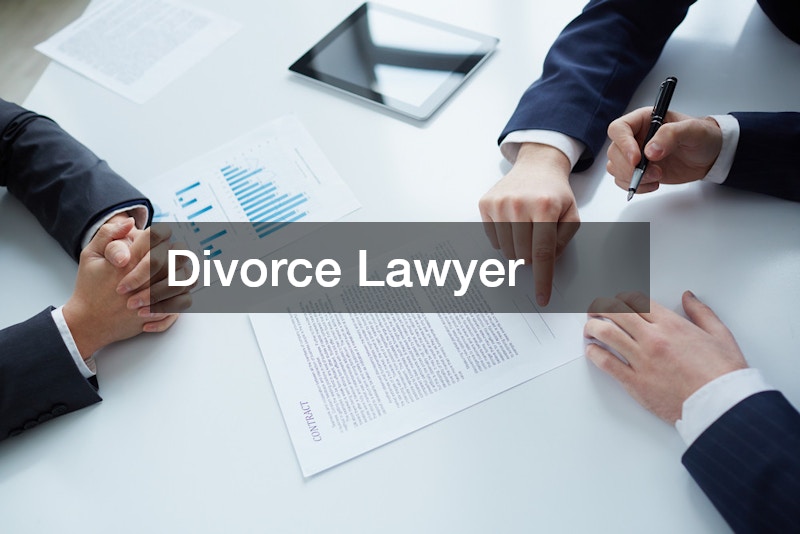Different types of lawyers are crucial for addressing the diverse legal needs of society. From criminal defense to family law and corporate litigation, each specialization ensures that individuals and businesses receive expert guidance and representation. This specialization helps uphold justice, protect rights, and navigate complex legal landscapes efficiently.
Legal proceedings can be daunting for those who are unfamiliar with the intricate processes involved. Whether you’re dealing with environmental lawsuits, vaccine injury claims, or bankruptcy issues, understanding the stages of litigation can provide much-needed clarity. This article aims to offer an extensive and detailed look at various types of legal services, including a close examination of each stage of litigation involved. The following sections will delve into specialties such as PFAS lawyers, vaccine injury lawsuits, chapter 7 bankruptcy attorneys, criminal defense lawyers, divorce lawyers, estate planning lawyers, bilingual lawyers, and probate litigation services. Additionally, we will discuss the specific role of family law attorneys and probate attorneys to provide a comprehensive overview. Each category is explained in detail, highlighting the role of the attorney involved and the stages of litigation that clients might face.
PFAS Lawyer
A PFAS lawyer specializes in cases involving Per- and Polyfluoroalkyl Substances (PFAS), a group of man-made chemicals that are harmful to human health. Clients turn to PFAS lawyers when they have been exposed to these substances and need legal assistance for compensation. These lawyers are experts in environmental law and toxic torts, making them invaluable in navigating the complexities of environmental litigation.
The first stage of litigation in PFAS cases involves investigation and research. The PFAS lawyer will conduct a thorough investigation to gather all necessary evidence. This includes testing soil and water samples, consulting with environmental experts, and reviewing medical records to establish a link between PFAS exposure and health issues.
The next stage is filing the lawsuit, where the PFAS lawyer prepares and submits the official legal complaint. This document outlines the plaintiff’s claims and the damages sought. Following this, the discovery process begins, involving the exchange of information between parties through depositions, interrogatories, and subpoenas. Finally, the case may proceed to trial or settlement, where the PFAS lawyer will advocate for their client’s best interests, seeking compensation for medical expenses, environmental cleanup, and other damages.
Vaccine Injury Lawsuit
A vaccine injury lawsuit is a legal claim filed by individuals who have experienced adverse effects following vaccination. These cases are intricate, requiring a thorough understanding of medical and legal standards. A lawyer specializing in vaccine injury lawsuits will help clients navigate the complex legal terrain to ensure they receive just compensation.
The initial stage of litigation involves determining the legitimacy of the vaccine injury claim. The lawyer will gather medical records, consult with healthcare providers, and review scientific literature to substantiate the claim. Once enough evidence is collected, the legal complaint is filed.
Following the filing, the discovery phase begins, which includes obtaining testimonies from medical experts and collecting additional evidence. The case may go to trial, where the vaccine injury lawyer will present arguments and evidence to prove that the vaccine caused the injury. Alternatively, many cases are resolved through settlement negotiations, where the lawyer seeks to secure compensation for medical bills, lost wages, and pain and suffering for the client.

Chapter 7 Bankruptcy Attorney
A Chapter 7 bankruptcy attorney assists clients in filing for bankruptcy under Chapter 7 of the U.S. Bankruptcy Code. This type of bankruptcy allows for the liquidation of assets to pay off debt, providing a fresh financial start for individuals burdened by overwhelming debt. A Chapter 7 bankruptcy attorney plays a crucial role in guiding clients through this process.
The first stage in Chapter 7 bankruptcy involves a thorough assessment of the client’s financial situation. The attorney will review income, expenses, assets, and liabilities to determine eligibility for Chapter 7. If eligible, the attorney will help the client complete the necessary paperwork and file the bankruptcy petition with the court.
Upon filing, an automatic stay is issued, halting all collection actions against the debtor. The case is then assigned to a bankruptcy trustee who oversees the liquidation of non-exempt assets. The final stage involves the discharge of eligible debts, providing the debtor with a clean slate. Throughout this process, the Chapter 7 bankruptcy attorney offers legal representation and advice, ensuring the client’s rights are protected.
Criminal Defense Lawyer
A criminal defense lawyer specializes in defending individuals and organizations charged with criminal conduct. These legal professionals are crucial in ensuring a fair trial and protecting the rights of the accused. Criminal defense lawyers play a pivotal role in each stage of the criminal litigation process.
The initial stage of criminal litigation involves the investigation and pre-trial procedures. The criminal defense lawyer conducts a comprehensive investigation to gather evidence, interview witnesses, and build a strong defense. This stage also includes pre-trial motions to suppress evidence or challenge the legality of the arrest.
During the trial, the criminal defense lawyer presents evidence, cross-examines witnesses, and argues on behalf of the defendant. If the defendant is found guilty, the attorney may also represent them during the sentencing phase, advocating for a reduced sentence. Throughout the entire process, the criminal defense lawyer provides critical legal support and works diligently to achieve the best possible outcome for their client.

Divorce Lawyer
A divorce lawyer specializes in family law and handles legal issues related to divorce, including asset division, alimony, child custody, and support. Navigating a divorce can be emotionally and legally complex, making the role of a divorce lawyer indispensable for those involved.
The first stage of divorce litigation involves the filing of a divorce petition and serving it to the other spouse. The divorce lawyer helps the client prepare this document, outlining the grounds for divorce and the relief sought. This stage may also involve temporary orders regarding child custody and support.
The discovery phase involves the exchange of financial information and other relevant documents between the parties. The divorce lawyer will scrutinize these documents to negotiate a fair settlement. If a settlement cannot be reached, the case may proceed to trial, where the lawyer represents the client, presenting evidence and arguments to support their position. Throughout this process, the divorce lawyer ensures the client’s interests are safeguarded while striving for an equitable resolution.
Estate Planning Lawyer
An estate planning lawyer assists clients in preparing for the management and disposal of their estate upon death or incapacitation. This includes drafting wills, creating trusts, and establishing powers of attorney. The expertise of an estate planning lawyer ensures that an individual’s wishes are honored and their assets are distributed according to their desires.
The initial stage of estate planning involves an assessment of the client’s assets, liabilities, and long-term goals. The estate planning lawyer will discuss various options with the client, explaining the benefits and drawbacks of each. This stage is crucial for creating an effective estate plan that meets the client’s specific needs.
Subsequent stages involve the drafting and execution of estate documents. The estate planning lawyer prepares the necessary legal documents, such as wills and trusts, and ensures they are executed in accordance with state laws. The final stage involves ongoing management and updates to the estate plan, ensuring that it remains relevant as the client’s circumstances change. An estate planning lawyer provides valuable guidance and peace of mind throughout this process.

Bilingual Lawyers
Bilingual lawyers are legal professionals who are fluent in two languages, offering invaluable services to clients who may not be proficient in the dominant language. This linguistic ability ensures that clients fully understand legal proceedings and are effectively represented.
The role of a bilingual lawyer begins with initial consultations where they can communicate with clients in their native language. This helps to build trust and ensures that clients can express their concerns and understand their rights and obligations fully. Bilingual lawyers play an essential role in bridging language gaps, making legal services more accessible.
The litigation stages involving bilingual lawyers mirror those of their monolingual counterparts but with the added complexity of translation. These lawyers must ensure that all legal documents, evidence, and court interactions are accurately translated. This requires not only linguistic skills but also a deep understanding of legal terminology and concepts in both languages. Bilingual lawyers thus ensure that their clients are well-informed and adequately represented throughout the legal process.
Probate Litigation Services
Probate litigation services involve resolving disputes related to the distribution of a deceased person’s estate. These disputes can arise from contested wills, disagreements among heirs, or issues with executors. Probate litigation services are provided by lawyers who specialize in this area, ensuring that estate conflicts are addressed legally and fairly.
The initial stage of probate litigation involves a thorough review of the contested will or estate documents. The probate litigation lawyer will gather evidence and interview potential witnesses to support their client’s claim. This stage is critical for building a strong case.
During the subsequent stages, the probate litigation lawyer will engage in negotiation and mediation to resolve disputes outside of court, if possible. However, if a settlement cannot be reached, the case may proceed to trial. At trial, the lawyer will present evidence, examine witnesses, and advocate for their client’s interests. Throughout this process, probate litigation services provide essential advocacy and guidance to ensure the fair and legal resolution of estate disputes.

Family Law Attorney
A family law attorney specializes in legal matters related to family relationships, such as marriage, divorce, child custody, and adoption. These attorneys provide critical support and representation in emotionally charged and complex legal proceedings.
The first stage in family law litigation involves an initial consultation and evaluation of the client’s situation. The family law attorney will gather pertinent information and discuss legal options with the client. This stage is essential for developing a strategic plan tailored to the client’s needs and circumstances.
The next stage includes filing the necessary legal documents and navigating pre-trial procedures. The family law attorney will represent the client in negotiations, mediations, and court hearings. If the case goes to trial, the attorney will present evidence, cross-examine witnesses, and make arguments to advocate for the client’s best interests. Throughout the litigation stages, a family law attorney provides indispensable legal counsel and representation, helping clients navigate the complexities of family law.
Probate Attorneys
Probate attorneys specialize in managing the probate process, which involves settling the estate of a deceased person. These attorneys assist in proving the validity of the will, inventorying assets, paying debts and taxes, and distributing the remaining assets to beneficiaries. Their expertise is crucial in ensuring that the probate process is handled efficiently and legally.
The first stage of probate involves filing a petition with the probate court to open the estate. The probate attorney will assist in preparing and submitting the necessary documents, notifying heirs, and providing initial inventory of the deceased’s assets. This stage sets the foundation for an organized and legally compliant probate process.
Subsequent stages involve managing the estate, which includes paying debts and taxes, and distributing assets as per the will or state laws if there is no will. The probate attorney will oversee these tasks, ensuring all legal requirements are met. The final stage involves closing the estate, where the attorney files a final accounting with the court and distributes the remaining assets to the rightful beneficiaries. Throughout these stages, probate attorneys provide essential legal guidance and support, ensuring a smooth and orderly probate process.
Navigating the complexities of legal proceedings can be challenging without the proper guidance and support of specialized lawyers. From environmental hazards to family disputes and financial insolvency, each legal specialty addressed in this article plays a vital role in safeguarding clients’ rights and achieving fair outcomes. Whether dealing with PFAS contamination, vaccine injuries, or estate planning, tbd is fundamental to ensuring that individuals receive competent and proficient legal representation. Understanding the stages of litigation in each specialty allows clients to prepare adequately and set realistic expectations. The expertise of lawyers, such as criminal defense, divorce, and probate attorneys, remains indispensable in our legal system. Legal professionals continue to offer invaluable services, advocating for their clients and ensuring justice is upheld in every aspect of the law.



